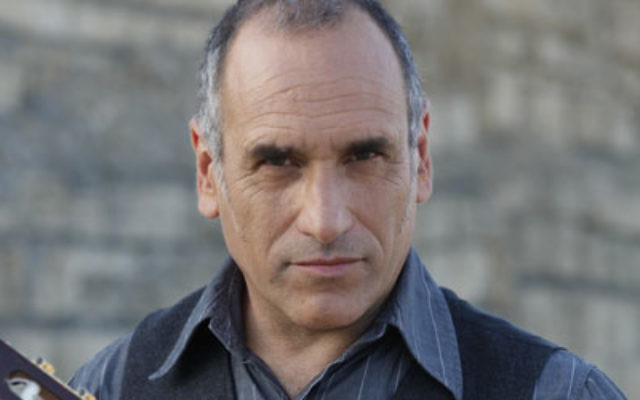Broza’s message of love
FORTY years ago in a cramped English boarding school room, a fledgling Israeli musician found himself in the unlikely situation of learning how to play finger-style guitar from his Palestinian roommate.
Together, on rainy days, far away from their warring homelands, they spent hours jamming and playing folk tunes.
Years later, that Israeli teenager would become known the world over as Israel’s answer to Bruce Springsteen, his flamenco-infused, folk-rock melodies with a message of love inspiring generations of Jews, both at home and abroad.
But to this day, 56-year-old singer-songwriter David Broza credits his Palestinian roommate for helping him build his signature sound.
“He gave me a sound I didn’t know how to achieve before,” Broza told The AJN by phone ahead of his Australian tour this month.
It has been five years since the Israeli superstar last toured Down Under, but this time around Broza said he is excited to be performing his classic hits alongside songs from his new album, Third Language, which is somewhat of a departure for him.
“For the first time in my career, I have written an entire album of both words and music. Usually, I just write music,” explains Broza. “After 35 years of performing, you always look for a new excitement, and this is exactly what I have been experiencing now.”
As the title suggests, the album explores the hidden language between two people who know each other quite well.
“It’s a relationship situation where good friends or lovers can almost guess each other’s thoughts … and that actually becomes a language the couple develops over time, and for me it’s a third language.”
For Broza, it has been a long but exciting journey to get to this stage in his career.
Born in Haifa, Israel, and later educated in England and Spain, Broza originally planned to be a graphic artist and by age 17, was selling his paintings in the Rastro, Madrid’s famous Sunday flea market.
But once drafted into the Israeli army, he began to pursue his other passion, playing guitar in cafes to earn extra money. He was quickly discovered and offered a record deal.
Fame soon followed with his 1977 hit song, Yihye Tov (It Will Be Alright), the unofficial national anthem of the peace process.
Over the years, Broza has continued to raise awareness about the Israeli-Palestinian conflict and other humanitarian causes. Most recently, he has written and recorded with the Palestinian group, Sabreen.
The song Belibi (In My Heart) featured Broza and Sabreen’s lead singer Wissam Murad, with two children’s choirs – one from each side of the conflict.
He also recently participated in the Playing For Change project, performing the song War/No More Trouble, with musicians from all over the world, including U2’s Bono and Rocky Dawuni from Ghana.
Interestingly, though, Broza doesn’t consider his music political.
“My persona is political, my music isn’t,” he said. “My music is about love, and I am pro-peace. But I certainly don’t use music as a political tool.”
And what about his Palestinian roommate? Are they still friends?
“We’ve lost touch, but I know where he is. I can’t wait for the day that I will see him again. He lives in Cyprus. I have fond memories and will have them for the rest of my life.”
David Broza will perform at the National Theatre, St Kilda on Tuesday, March 6 (Bookings: venue.nationaltheatre.org.au) and at the Parade Theatre, Sydney on Monday, March 12. (Bookings: www.ticketek.com.au).
REPORT: Chantal Abitbol
PICTURED: Israeli singre David Broza in concert.


comments